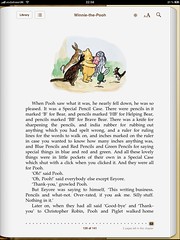Upcoming events
June 06, 2010 | CommentsTo say that things have been busy is an understatement. I'm also out and about a lot at the moment - I had the pleasure of attending the excellent m-publishing event last week run by Camerjam, and am about to hop off for a couple of European events. In the next month or so I'll be:
- Talking about approaches to J2ME development at the O2 Litmus event sponsored by Sun^H^H^HOracle tomorrow evening, at Ping Pong in Liverpool Street;
- On-stage at Mobile Monday on 14th June to discuss my favourite subject in the world ever, fragmentation;
- Hopping over to Barcelona for Mobile 2.0 Europe on 17th, where I'm running our Mobile Mountains workshop and getting a few teams of interested folk designing and testing a product in 90 minutes. I'll also be on the jury for the AppCircus side of this event.
- Dragging my big bag o' wooden phones from there to Mobile Monday Slovenia on 21st June, where I'm running the same workshop format again;
Pop me an mail if you fancy catching up at any of those...
Better Thinks Through Dumping Links
June 06, 2010 | Comments- James Shore on games to explore software architecture skills. Lovely stuff, I was looking for exactly these a few weeks back.
- Links discovered between mental illness and creativity. My Goldacre-sense is tingling, but what the hey...
- A behind-the-scenes look at the Michel Thomas iPhone app BERG has created. Interesting to see the number of discarded ideas and the negotiation between technical constraints and beauty. Plus I'm really hoping that their term "tuning" is a Dark City reference.
- Lots of buzz around mobile payments right now: PayPal. If I were an operator, I'd be frantically reconfiguring myself to 99% engine mass, in an attempt to avoid the rest of the world doing to payments what they did to location services (i.e. wait for it for bloody years then get fed up and go do it better and cheaper themselves).
- Wired on iPad: much more shit if you care about how it's made, I find, but here's a nice design critique.
- Smokescreen: really cool I guess, but I can't help feeling it's a talking dog in most cases... i.e. unless you have a pile of existing Flash content kicking around, or folks skilled in Flash who can't migrate webwards.
- Nice piece on non-obvious gestures in the iPad: "...gesture-based user interfaces often don’t have visible elements that represent verbs. The gesture is the verb. This works if the gesture is intuitive, but breaks down if there is no «natural» gesture for a verb.". Not sure I like the use of this to justify modes, mind...
- Danny Sullivan presents a case study of the mainstream media taking a story and running with it without credit. Be interesting if this kind of "borrowing" could be quantified, perhaps with the same level of scientific rigour frequently applied to software or music piracy. I mean, the damages we calculate as done by such evil ought to be financially offset against these benefits, no?
- The Guardian Build Radiator. I'm very interested in these things right now, as tools for unifying teams around a consistent view of a business. Mr Bigland at FP has been working on such a beast for us, I'd love to see it include e.g. the sales pipeline as much as project progress...
- Along related lines, Informal Conversations in Multi-Geographic Teams: "...we had always assumed that you can pick up a phone, use IM, or send off an email to the remote person. Yet it turns out that the mere presence of the remote person via the robotic avatar has profound psychological effects on how people initiate communications within teams."
- Alan Cooper tries to find common ground: "The biggest problem in software today is that programmers and designers simply don’t work well together". He's rightish, but I can't help feeling that writing a book which claims programmers intrinsically care more about making the construction process easy than meeting user goals, didn't help here...
- Scrum patterns, a really lovely checklist of stuff that matters.
- I, Pencil, as related to me by Mr Castle: "I, Pencil, simple though I appear to be, merit your wonder and awe, a claim I shall attempt to prove... not a single person on the face of this earth knows how to make me. "
- If someone mentions Android, make sure you go totally nuts. That is all.
Compulsory iPad First Impressions Post
May 31, 2010 | CommentsAs required by the Law of Steve, some observations after a few days use:
- The form factor is very pleasing indeed. I've never been a netbook user but I find this device extremely convenient. The optional case is a big part of this, helping me move the little fellow around without worrying too much about scratching the screen, and keeping it at the right angle for typing.
- I no longer see the iPad as purely a content consumption device. In landscape mode the keyboard is perfectly serviceable and I can type about as fast as I can bash out words on a regular keyboard, with slightly less accuracy. I've used it to happily write up talk notes, emails, and this post. I've ordered a Pogo stylus to give sketching and note-taking a go too.
- Battery life is amazing. I'm in the first few days of use, where I'm inclined to overuse a new piece of tech, and I've only given it one charge in the last four days. I know it's not the kind of feature consumer electronics is marketed on, but it should and could be.
- In-app purchases are suddenly everywhere. The Marvel comics app has had me go back and buy about 5-6 times, just by having content I (sort of) want and being so darn simple. I could see my spend on content increasing significantly as a result of owning this device.
- That said, I'm finding most magazine implementations a bit disappointing. Visually they're usually decent, but I find myself lost in them: I have no sense of how far through I am or where I sit in the structure of the magazine, despite having (in some cases) the metaphors and UI explained to me by the magazines creators themselves. Whilst I love the sense of "completion" which Bonnier/BERG have talked about their digital magazines having, I can't get that without knowing where I am and where I've been. Navigation elements showing my position along a slider or even the lovely and subtle Popular Science bar-chart don't seem to satisfy me here... and I'm yearning for the digital equivalent of "flicking through pages" to find an article (titles in a table of contents just aren't descriptive enough).
- When I found out how the Wired magazine was put together, I was a little bit sick in my mouth.

- Lots of physical-world metaphors: the ruled lines in Notes, the leather-bound calendar, the pages in iBook. Complete aside from whether you find them cheesy or not (and I've surprised myself with how bad I think they aren't), Apple, if you're going to do this sort of stuff: follow through. When I'm reading Winnie-the-pooh and I'm on the last page, note that it still looks like I've a whole book left to read. This is both unhelpful (I like to know how much of a book is left) and inconsistent, suggesting a fundamental difference between digital and print which the rest of the UI is trying to mitigate against.
- I don't miss multitasking. There, I said it. I find myself more focused on what I'm doing for the lack of it. Email comes in with a gentle "ping", but I'm not distracted by who it's from. I find this particularly weird because on my (Android) mobile, status-bar notifications are one of my favourite features, and somewhere I've considered Android had the edge over iPhone.
- Google services - which I use a lot - are a mixed bag. Voice search is simply phenomenal, it's snappier and more useful than ever. GMail is good. Docs and calendar both default to mobile versions which I find frustrating, if still useful.
- I've noticed I'm less bothered about having my phone to hand. The iPad is definitely substituting for much of the sofa-surfing, internet-using, recipe-reading activity I was doing on my Nexus before.
So it's still definitely the honeymoon, but I'm getting a lot out of this little device. Tomorrow I'm going to try a day in London laptop-less, for the first time in years..
Secret Lewis, Secret Launch
May 28, 2010 | Comments One of the things that sits on my Huge Ever-Growing Backlog Of Things To Do is write about some of the products we've launched in recent months. So, starting with the oldest first... Secret Lewis, which launched in March.
One of the things that sits on my Huge Ever-Growing Backlog Of Things To Do is write about some of the products we've launched in recent months. So, starting with the oldest first... Secret Lewis, which launched in March.
Last year we were approached by nDreams, a developer and publisher of games, to help them with the mobile element of an ARG they were putting together for Reebok. It turns out that Lewis Hamilton is not only a Formula 1 racing driver - he also moonlights rescuing works of art that have been stolen... and he needs help. The ARG runs from March until October this year, and is split into five episodes, with a mobile game for each. You can pick up the first episode ("Shanghai Mansion") here on Getjar. The games themselves are built for a wide range of feature-phone handsets, and we've produced 8 language versions. This is an international game built for an international audience that's wider than just iPhone and Android owners; much as we love the power and flexibility of modern mobiles, we love reaching the other 97% of the world too.
A nice little behind-the-scenes detail of Secret Lewis is the workflow between us and nDreams. There's a web-based Unity version of each episode, and we take a data file exported from this, run it through a rather nifty parser, and use this to generate new game files which the MIDlet consumes: so the mobile and web games are naturally kept in sync.
We'll be launching more episodes of Secret Lewis in the coming months...
Update: how remiss of me, I've realised that I failed to give a shout to the team at FP who put Secret Lewis together - mea culpa. That'll be The Fighting Mongooses, AKA Thom Hopper, Adrian Bigland, Chris Glaister, Tariq Tamuji, and Ali Driver...
Eduserv Symposium 2010
May 17, 2010 | CommentsI attended and presented at the Eduserv Symposium last week, an annual event for technologists in education. Notes are a bit lacking, I'm afraid, but an excellent venue (the Royal College of Phyicians, where I think WAP Wednesdays of yore were held), solid wi-fi and a strong lineup of speakers made for a good day. I was pleasantly surprised by the interest and engagement of the audience, too - education not being a sector that I'd immediately associate with enthusiasm for the new.
I presented some real-world experiences launching mobile apps, drawing on our work for Puzzler and a piece of concept work we did for Channel 4 Education a couple of years ago. You can find the slides online here.